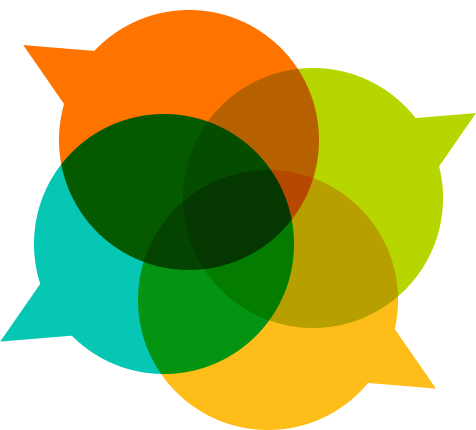Here’ a recap of our beginning journey with Learning Circles followed by an update in text format.
The Journey of Learning Circles at Providence Public Library
(originally posted in November 2017)
This is a rather long post, but I wanted to share our growth over the past year hoping it might be helpful to you all.
About one year ago, we ran our first Learning Circle at Providence Public Library (PPL) for ESOL learners (English to speakers of other languages) who were waiting to get into a class. Since then, we have experimented with different types of learning circles and have learned quite a bit!
The P2P model of learning circles gave PPL a new avenue to leverage technology and peer-support to connect adults to learning and to one another. Since October 2016, the staff at PPL has offered 8 learning circles in 3 libraries systems in Rhode Island. To date, all of our learning circles have been connected to library programs although we’re just beginning to branch out.
The Providence Public Library has a robust education department that coordinates children, teen, and adult programming. Our adult education program, the Rhode Island Family Literacy Initiative (RIFLI), serves about 450 students each year. In 2016-2017, we offered (2) ESOL, (3) citizenship, and (1) language arts learning circles to RIFLI learners. Some of the circles were intended to accommodate students on waitlists for classes and others were offered as a change of pace from instructor-led classes.
Providence Public Library also has a very busy digital learning program that includes advanced computer skills, coding, and data navigation. Our coding classes, Rhode Coders , is a 10-week course that builds learners’ skills in creating web pages using HTML and CSS. Part two of the Rhode Coders, is also a 10-week program that focuses on JavaScript. Students in these classes are eligible for micro-credentials in the form of a digital badge. To support learners in earning their badge, we offered a learning circle, run by a volunteer, where students continued working on the projects they would submit as evidence of learning for their badge. Attendance was low, but we’re planning on offering to each Rhode Coders class.
In the fall of 2017, our technology instructor introduced a 5-week course on data visualization. At the end of the 5 weeks, many learners were very enthusiastic to continue learning. A learning circle was the perfect fit. A small group has been meeting weekly and has developed their own project to practice and apply their learning.
On November 9, 2017, a new type of learning circle will begin on the topic of web literacy. This learning circle is a collaborative project between PPL and the Genesis Center, an adult education organization in Providence. The goal is to supplement basic digital literacy classes offered to students by using Mozilla’s online web literacy framework to deepen the knowledge of and increase skills in reading , writing, and participating on the web.
The Journey
Our first ESOL learning circle had an average of 3 students attending and often 3 different students at each session. The range of English skills was beginning to advanced and the common goal was that they wanted to practice speaking and listening, so working for an hour on a computer was not very appealing. It felt like we were trying to fit a square peg into a round hole. The group was too small to establish a sense of community with students who had very limited English. It became clear that we needed to find a better match of content to student needs.
We changed the focus to students who had a common interest: studying for the U.S. citizenship exam. This worked well because students had a common goal and resources that could accommodate a range of English skills. The primary resource was[www.citizenshipstudyguide.com for interactive interview practice. Attendance was good and most of the students used these websites outside of the learning circles. Two passed their exams and the others were invited to classes at a later date.
In the summer, RIFLI offers 6-week classes and our teachers can choose the focus of their classes. Two of our teachers chose to run learning circles. They invited students from the previous semester as well as those who were waiting to get into a fall class. A total of 3 learning circles were offered in this 6-week period: 1 ESOL, 1citizenship, and 1 English language arts.
The English LA circle had a different approach. The group read the same book and the learning circle time was dedicated to research around themes related to the book. The teacher gave the topics to research, and in the time before and after the online portion, students shared the results of their research.
Some of our learning circles were facilitated by volunteers, others by teachers, and others by participating members of the learning circle. We found the most effective way to jump start our learning circles was by connecting to existing programs. We still hope to engage library patrons on a broader scale, but by tapping into library programs, we were able to get our feet wet, and experiment with different types of learning circles.
We are now expanding learning circles in the adult education community. Stay tuned!
Sherry Lehane
Training Specialist, Providence Public Library
